Brian Medkeff-Rose to Retire After Decades of Compassionate Leadership
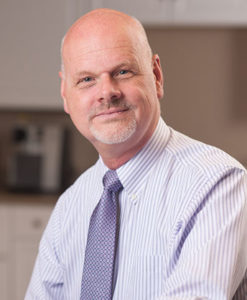 At the end of October, Brian Medkeff-Rose, M.Div., M.A., Bereavement Counselor at Homeland Hospice, will retire after more than 28 years of compassionate leadership. During his time with Homeland, Brian has implemented innovative approaches to reaching and supporting the bereaved. His deep well of empathy and support has helped countless people find new purpose amidst the pain of loss.
At the end of October, Brian Medkeff-Rose, M.Div., M.A., Bereavement Counselor at Homeland Hospice, will retire after more than 28 years of compassionate leadership. During his time with Homeland, Brian has implemented innovative approaches to reaching and supporting the bereaved. His deep well of empathy and support has helped countless people find new purpose amidst the pain of loss.
Brian graduated from the Methodist Theological School in Delaware, Ohio. He was ordained by the Christian Church (Disciples of Christ), and obtained his clinical pastoral education from Bethesda Hospital in Ohio, which prepared him to work in acute care, outpatient care and long-term care, as well as elder services, home health and hospice care. Brian’s clinical pastoral work led him to Harrisburg and, ultimately, to Homeland Hospice. Homeland Hospice is a nonprofit hospice program that serves communities throughout Central Pennsylvania.
“I k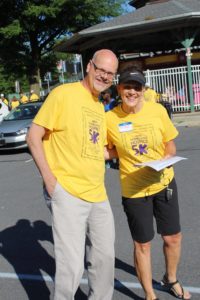 new immediately Homeland was where I belonged,” Brian says. “I’ve been proud to be part of a team approach to care. Social workers, physicians, nurses’ aides, volunteers – we have all worked together to help those in need.”
new immediately Homeland was where I belonged,” Brian says. “I’ve been proud to be part of a team approach to care. Social workers, physicians, nurses’ aides, volunteers – we have all worked together to help those in need.”
As a bereavement and spiritual counselor, Brian has used an out-of-the-box approach to create a path forward for individuals experiencing loss. Several years ago Brian launched the Men’s Breakfast and Women’s Luncheon Series, which provides a monthly platform for individuals to connect with others on a similar path. Through these events, strangers become friends by sharing a safe space to speak about their journey of grief.
In 2019, Brian helped organize “A Journey from Hops to Beer: The Grief Path” for individuals in Homeland’s bereavement program. At the event, Brian discussed the similarities in the journey of grief to the process of making beer. Both take time and patience. At the event, individuals at different points in the grieving process talked about their experiences and offered each other support.
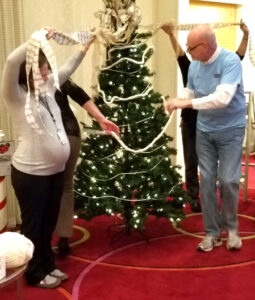 “We never stop grieving,” Brian says. “The amount of time since the death of your loved one does not matter. It’s always okay to cry.”
“We never stop grieving,” Brian says. “The amount of time since the death of your loved one does not matter. It’s always okay to cry.”
In addition, Brian has helped incorporate messages about the grief process into Homeland Hospice’s Annual Memorial Walk and 10th Anniversary Event, “Guitars, Gifts & Gratitude,” held last November.
“I am so fortunate to have worked alongside of Brian,” says Noelle Valentine, MSW, LSW, Bereavement Counselor for Homeland Hospice. “He has given me the foundation to serve our patients and their families with a servant’s heart.”
At the core of Brian’s outreach exist a simple message of love, self-care and the acceptance of transformation as part of the grieving process.
“Brian’s love and passion for his work is contagious,” says Mary Peters, MSW, Assistant Director of Social Services for Homeland Hospice. “He will be greatly missed by our staff and hospice families.”
“It’s been a privilege to know our patients and families and support them through their life-changing journeys,” Brian adds. “They will always have a special place in my heart.”
Homeland Hospice’s bereavement support program is available to the bereaved of Homeland’s patients as well as anyone in the community who is experiencing grief. Bereavement support group meetings also are held on a rotating schedule throughout the year.
To learn more, please contact Homeland Hospice at (717) 221-7890.

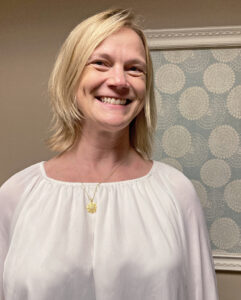 Homeland Hospice, a nonprofit hospice program that serves communities throughout Central Pennsylvania, has been selected to participate in the alpha testing phase of a new tool to standardize the collection of data for hospice patients. Homeland is one of 20 hospice programs chosen nationally, and the only hospice in the state participating in the project.
Homeland Hospice, a nonprofit hospice program that serves communities throughout Central Pennsylvania, has been selected to participate in the alpha testing phase of a new tool to standardize the collection of data for hospice patients. Homeland is one of 20 hospice programs chosen nationally, and the only hospice in the state participating in the project.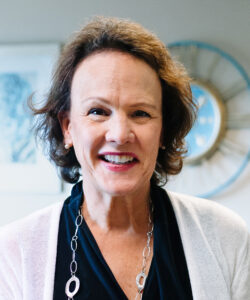 Myra Badorf is the Assistant Director of Development for Homeland Hospice and on August 16th celebrated her 10-year anniversary. Upon looking back, she shares her thoughts with us.
Myra Badorf is the Assistant Director of Development for Homeland Hospice and on August 16th celebrated her 10-year anniversary. Upon looking back, she shares her thoughts with us.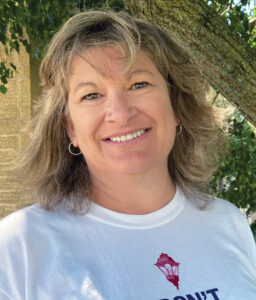 The end-of-life journey is a time when extra comfort and support is needed as patients and their families are often fatigued physically, emotionally and spiritually. A hospice caregiver is often faced with situations that can change daily or even hourly. Frequent medications, dressing changes, safety, toileting, feeding, and emotional support easily fills their day, and in many cases, their night too. In addition, there are situations in which a spouse or caregiver may never have prepared a meal. The patient is the one who always handled that daily task.
The end-of-life journey is a time when extra comfort and support is needed as patients and their families are often fatigued physically, emotionally and spiritually. A hospice caregiver is often faced with situations that can change daily or even hourly. Frequent medications, dressing changes, safety, toileting, feeding, and emotional support easily fills their day, and in many cases, their night too. In addition, there are situations in which a spouse or caregiver may never have prepared a meal. The patient is the one who always handled that daily task. Some of our volunteers simply cook a little extra when they are preparing a meal for their own family. Church group often use the left-overs from a community or church meal to make a yummy dish or soup.
Some of our volunteers simply cook a little extra when they are preparing a meal for their own family. Church group often use the left-overs from a community or church meal to make a yummy dish or soup.

